Abstract
BACKGROUND. The majority of cancer patients in the United Kingdom die in a National Health Service hospital, a setting that is contrary to the wishes of those patients expressing a preference to die elsewhere, for example at home or in a hospice. AIM. A study was undertaken to determine clinicians' views of the appropriate place of death for cancer patients and to examine factors leading to patients being admitted to a hospital specialist services unit where they died. METHOD. A questionnaire was sent to all general practitioners and hospital doctors who had cared for cancer patients who had died between May 1991 and April 1992 in a single health district. The appropriateness of the place of death, whether the patient was terminally ill, reasons for hospital admission and effect on management had different resources been available were determined. RESULTS. A total of 1022 deaths attributable to cancer were recorded for patients registered with general practitioners in the study area. Questionnaires were returned by general practitioners for 951 of the deaths (93%); hospital doctors returned questionnaires for 216 out of 268 patients (81%) who had been admitted to hospital under the care of a consultant. For deaths which had occurred at home, in a community hospital, residential/nursing home or Marie Curie hospice, the place of death was considered appropriate by general practitioners in over 92% of cases. For deaths in the hospital specialist services unit the place of death was considered probably or definitely appropriate by general practitioners in 83% of the 212 cases, but not appropriate in 17% of cases (P < 0.001 compared with all other settings). Hospital doctors considered 27% of deaths in the unit inappropriate. Significantly fewer cases fulfilled the criteria for terminal illness (death expected and palliative treatment commenced) according to general practitioners among those dying in the specialist services unit compared with deaths elsewhere (P < 0.001). The most common main reasons for admission to the specialist services unit were for investigation, because of difficult symptom control (apart from pain) and for curative/active treatment. General practitioners reported that management of between a sixth and a quarter of patients admitted to the specialist services unit would have been affected by the availability of 24-hour home cover, community hospital beds and a city-based hospice. Among the group of patients fulfilling the study criteria for terminal illness, the effect of other services on patient management would have been considerably higher. CONCLUSION. A greater proportion of cases where patients died from cancer in settings other than a specialist services unit were considered appropriate by general practitioners compared with deaths in a specialist services unit. For a considerable minority of patients, death in a specialist services unit was not considered appropriate by the general practitioners or by the hospital doctors. Improvements in local hospice facilities, community hospitals and community support would mean that a substantial proportion of hospital admissions could be avoided and thus cancer patients could die in more appropriate settings.
Full text
PDF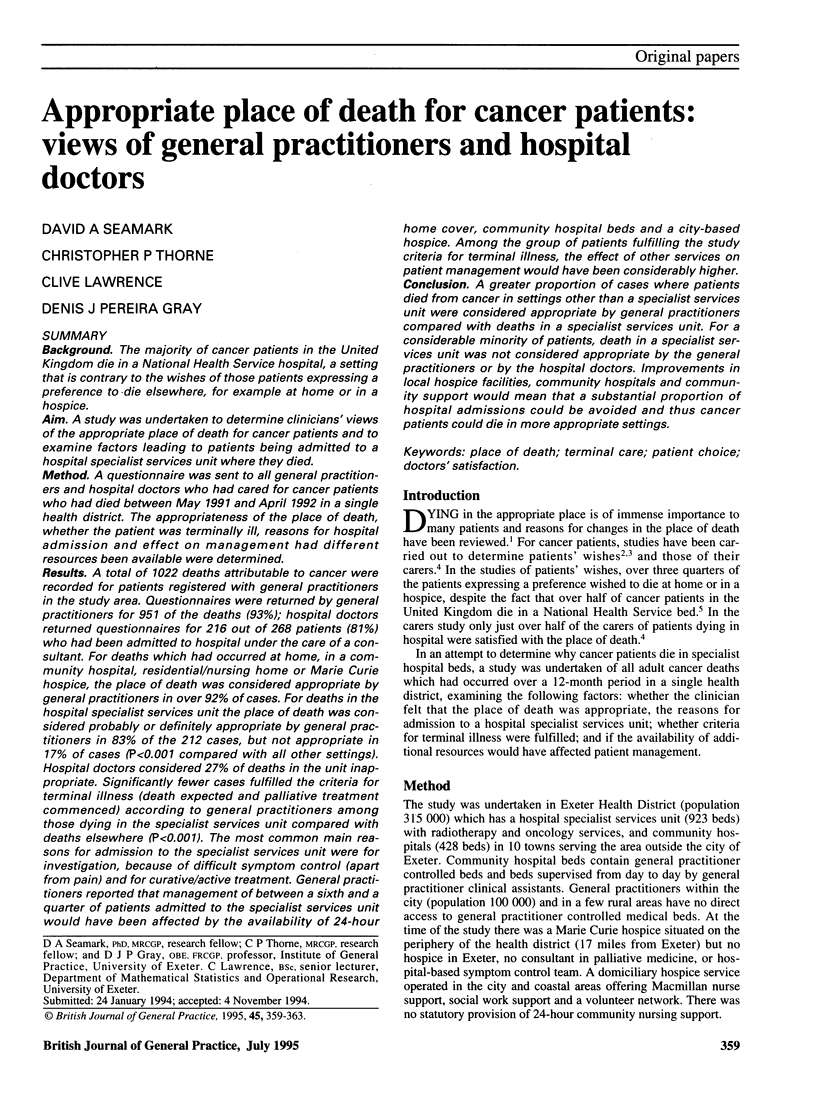
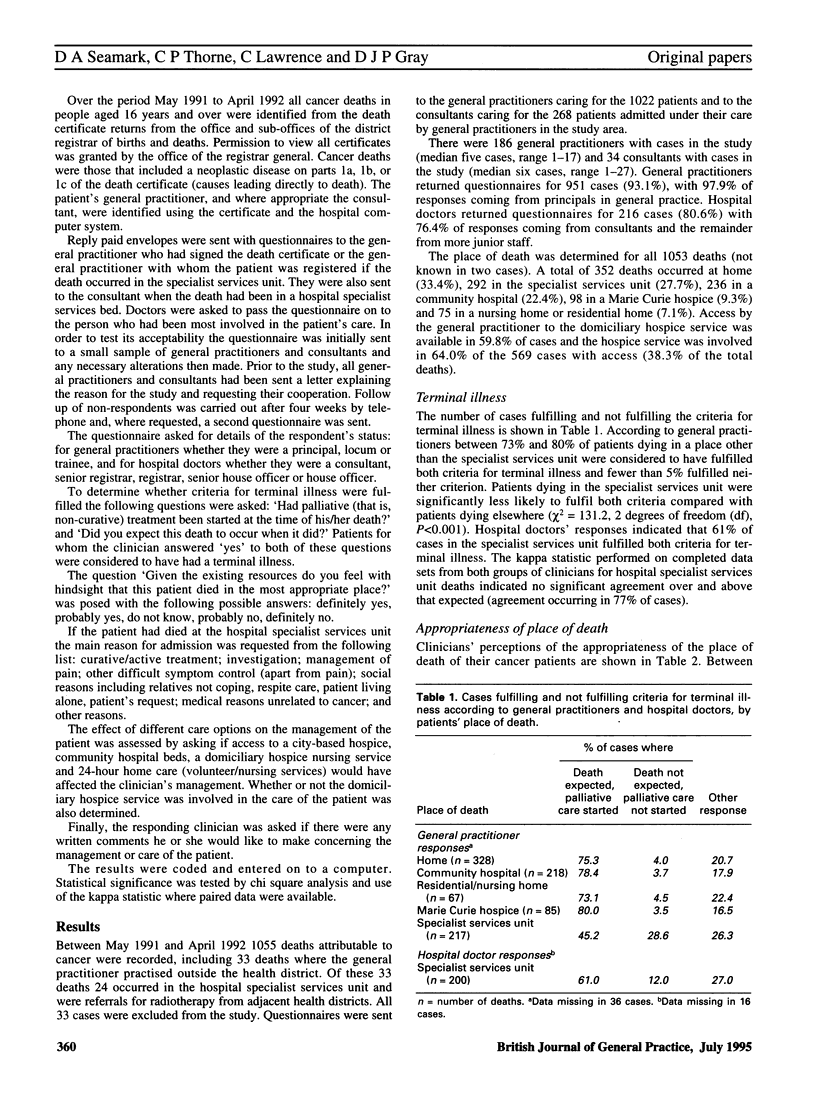
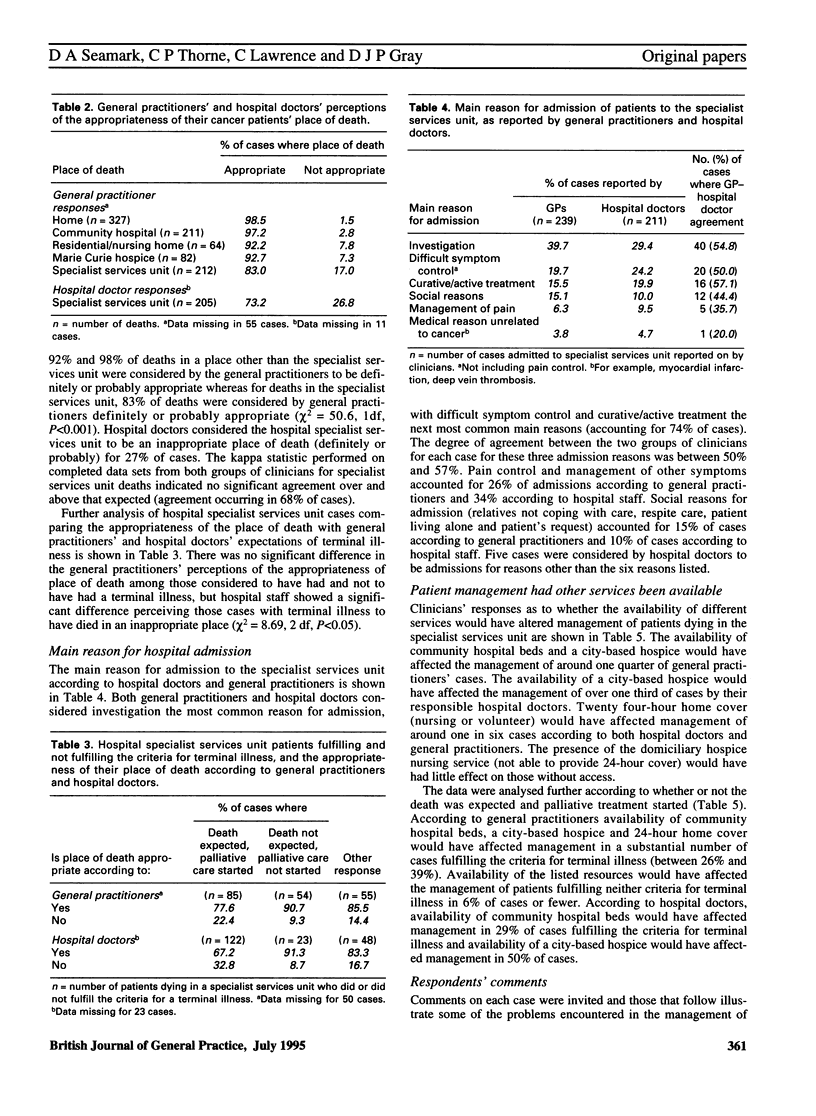
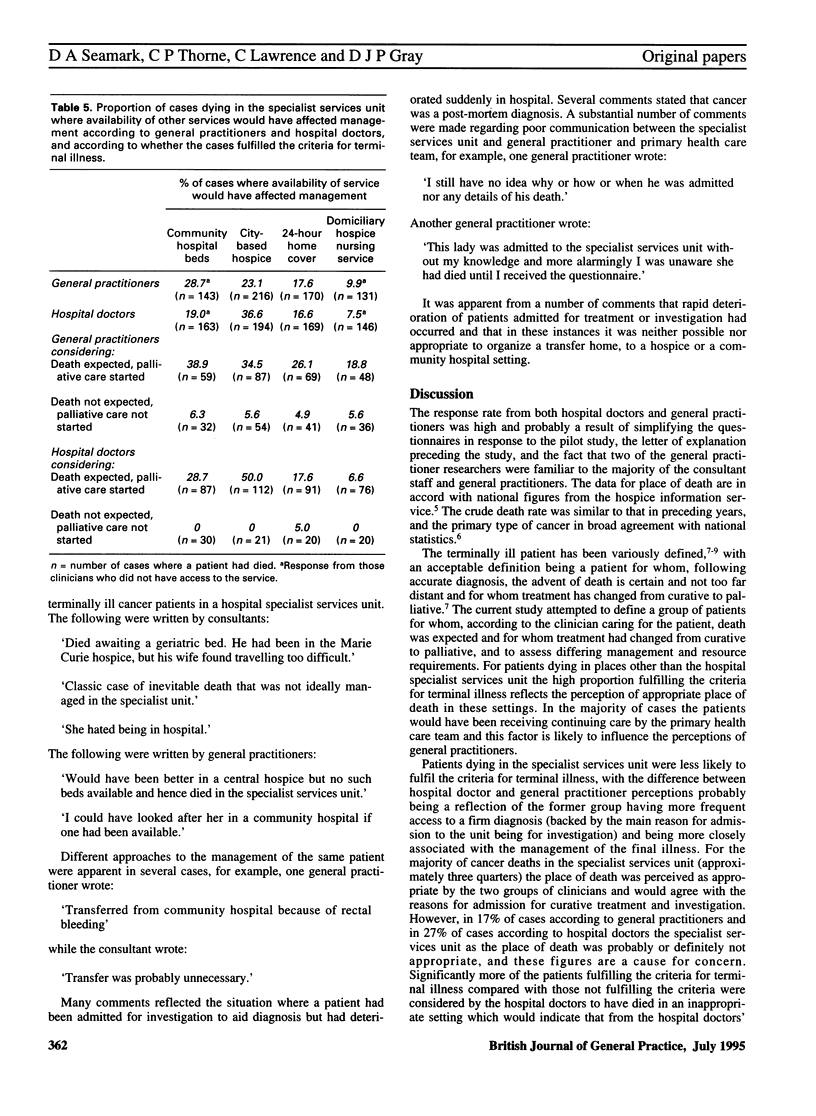
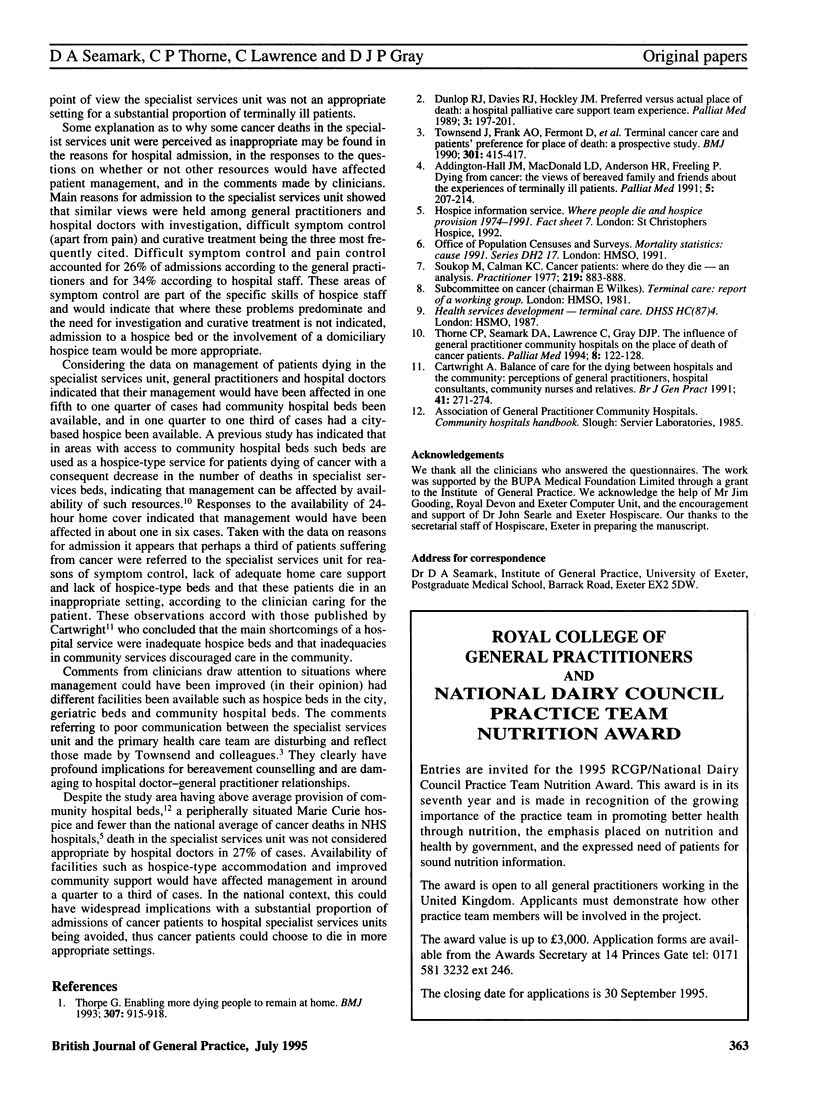
Selected References
These references are in PubMed. This may not be the complete list of references from this article.
- Cartwright A. Balance of care for the dying between hospitals and the community: perceptions of general practitioners, hospital consultants, community nurses and relatives. Br J Gen Pract. 1991 Jul;41(348):271–274. [PMC free article] [PubMed] [Google Scholar]
- Thorne C. P., Seamark D. A., Lawrence C., Gray D. J. The influence of general practitioner community hospitals on the place of death of cancer patients. Palliat Med. 1994;8(2):122–128. doi: 10.1177/026921639400800205. [DOI] [PubMed] [Google Scholar]
- Thorpe G. Enabling more dying people to remain at home. BMJ. 1993 Oct 9;307(6909):915–918. doi: 10.1136/bmj.307.6909.915. [DOI] [PMC free article] [PubMed] [Google Scholar]
- Townsend J., Frank A. O., Fermont D., Dyer S., Karran O., Walgrove A., Piper M. Terminal cancer care and patients' preference for place of death: a prospective study. BMJ. 1990 Sep 1;301(6749):415–417. doi: 10.1136/bmj.301.6749.415. [DOI] [PMC free article] [PubMed] [Google Scholar]


